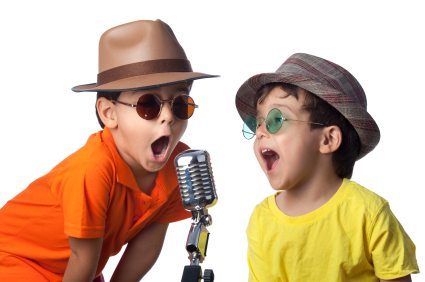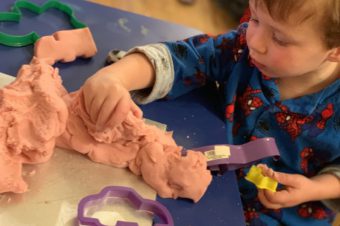Whether singing songs with your toddler or playing classical music to the baby in your growing womb, most people already recognize the benefits of exposing young children to music. Here are some of the pretty amazing impacts which music can have on little ones.
Music and the Young Brain
Song and other music represent powerful tools for development because they simultaneously promote growth in a number of different areas. Simply singing a lullaby while nursing or rocking a baby to sleep can stimulate early language development, encourage attachment and increase a baby’s expanding spatial awareness.
Engaging with your child through music, whether it is sing-along time or dancing, is a social experience which helps little one’s learn valuable social and emotional skills. Lullabies may help with self regulation. Songs from your childhood support cultural awareness. Self-esteem and self-confidence come from enjoying sound and taking part in it.
As musical sound helps kids begin to comprehend emotions and build relationships, their fine and gross motor skills also begin to develop and improve. Learning to clap and use your fingers during interactive tunes like, “Wheels on the Bus” or “I’m a Little Teapot” can foster balance, coordination and motor control.
Music at Play
For children, play is an essential component of learning and growing. Playtime activities allow their imaginations to expand as they emulate the real world and practice interacting.
There are many different types of play. Some of the basics include:
- Active, physical play
- Dramatic, imaginative play
- Creative, expressive play
- Social play
- Mental play
Music can combine with any of these play styles. During active play, children can dance to an upbeat song. In dramatic play, little ones can present a performance. As a part of creative play, they can invent new songs, practice beating a drum or create their own instrument out of craft supplies.
Social play refers to interaction between children. And music can be a part of this as well when kids sing songs together, etc. Finally, when exploring the world of mental play, children can learn about rhythm and beat and naming the notes in music.
Incorporating Music Every Day
Music is a powerful tool for simply lifting a family’s mood. “According to a recent Harris Interactive survey of parents and children ages 1—5 years,” writes blog.nj.com, “listening to music during playtime makes children happier, sillier, more excited and engages them in play for longer periods of time; music also makes parents feel more relaxed.”
Music and play fit together very naturally. And even without parents’ help, most kids will add music to their fun activities through singing and drumming on pots and pans. But the surprising benefits of music exposure should certainly motivate moms and dads to consciously introduce music into the home.
With Christmas coming up, there are some fantastic gifts that will encourage children to play with music. There are basic instruments that make great stocking stuffers and presents like:
- Rhythm sticks
- Penny whistle
- Recorder
- Harmonica
- Beat drums
- Tambourine
- Keyboard
- Melody harp
- Ukulele
By singing in the car, playing with beginner instruments and dancing in the living room, kids and parents alike can enjoy the amazing effects of music and play.
A bit about Jessica Socheski:
Jessica is a freelance writer who is passionate about family life and college success. When not writing and researching, you can find Jessica swimming at the beach. You can connect with Jessica via Twitter @JessicaSocheski




